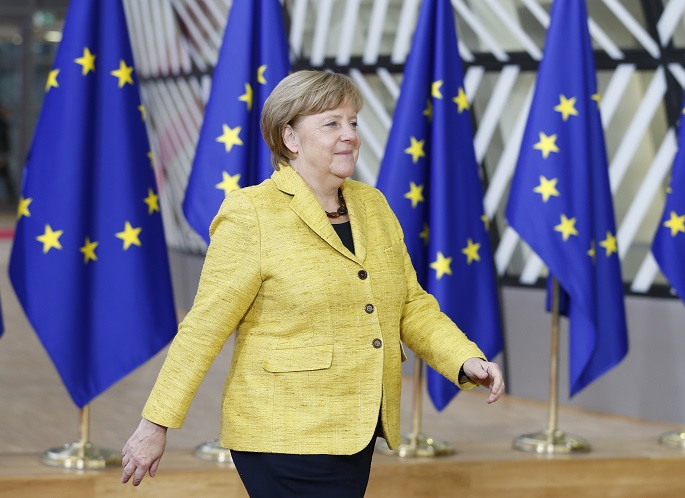Merkel cautions against "expensive" technical upgrades of diesel motors
Published : 12 Apr 2018, 00:13
German chancellor Angela Merkel has warned on Wednesday that controversial technical upgrades of diesel vehicles to lower their nitrogen oxide emissions may prove too "expensive" to be feasible.
Speaking on the sidelines of a cabinet meeting held at the Baroque Meseburg palace in Brandenburg, Merkel told the press that the federal government was still in the process of assessing diverse proposals to ensure that German cities complied with European Union (EU) clean air regulations.
The chancellor said that she had "clear expectations" of the German automotive industry which had made "disastrous mistakes" and now needed to help address environmental concerns caused by the ongoing dieselgate scandal. However, Berlin would only force carmakers to go beyond already agreed software updates by additionally offering costly technical upgrades if the measures passed a thorough cost-benefit analysis.
Taking a more assertive stance than Merkel, the minister for the environment Svenja Schulze (SPD) has publicly urged carmakers to commit to technical upgrades for vehicles affected by illicit emissions cheating software. The demand has been met with heavy opposition from automotive manufacturers and lobbyists, however, which have highlighted that such re-engineering efforts would also result in higher Carbon Dioxide (CO2) emissions which are a major contributor to climate change.
Earlier, Berlin admitted that at least 20 German cities would fail to meet EU regulatory limits on NOx pollution by 2020. The Federal Environmental Agency (UBA) has estimated that diesel cars are responsible for more than 50 percent of nitrogen oxide (NOx) emissions in Germany. When inhaled by humans, the toxic gas has been associated with a range of pulmonary diseases.
The newspaper "SPIEGEL" cited calculations by the non-governmental organization (NGO) German Environmental Aid (DUH) that technical upgrades of diesel vehicles with the motor type Euro5 and Euro6 could cost up to 15 billion euros (18.5 billion U.S. dollars) in total. The DUH director Juergen Resch argued on Wednesday that this approach nonetheless offered the only effective means of reducing NOx levels whilst averting diesel driving bans.


